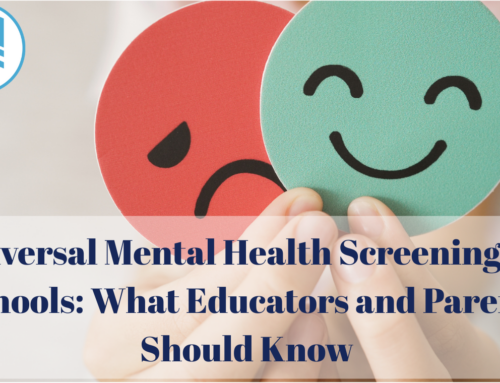
Recently, President Biden dipped his toe into the icy waters of controversy with an executive order “encouraging the Federal Trade Commission to ban ‘unnecessary occupational licensing restrictions,’” says Education Next.
President Biden called the current state of affairs “overly burdensome occupational licensing requirements” and suggested that they create unfavorable conditions for some workers, including teachers, who are seeking to enter the workforce.
Not everyone agrees that a world with fewer certification requirements would be a better one for our kids’ educations. Parents have an especially active stake in this controversy. The Edvocate prompts parents to consider the matter, saying “…do you know whether your child’s teachers are certified to teach? If not, this could be an issue.”
The certification debate looms large in relevance today, as American schools face a shortage of educators. What benefit do teaching certificates have? Are there benefits to allowing teachers to educate without a license?
And what would happen if the bar was lowered?
The Need for Good Teachers
According to Pew Research, despite America’s seemingly obsessive fascination with education, our students continue to test poorly compared to their international peers.
Most often, our country tries to combat this by providing more funding for education. Still, as Forbes notes, “Funding per student has been rising sharply for decades, resulting in lower class size, but such expenditures seem not to have succeeded.”
A reasonable response might be to ensure that the students have quality teachers. Western Governors University notes the importance of quality teachers: “Good teachers have a huge impact on learners and help them engage in lifelong learning. Good teachers can make a world of difference on a child from any age.”
But, the million-dollar question lingers: how do schools attract those good teachers?
“Raising starting teacher salaries is an obvious first step…” notes the Hoover Institute, but is that enough? Forbes argues that this strategy, though popular, isn’t exactly foolproof because a pay raise doesn’t weed out bad teachers. Starting pay is the same whether the teacher is good or not. Higher pay might incentivize teachers to join the profession, but there is no guarantee that good teachers would be the majority.
Certification: Does It Deter or Ensure Good Teachers?
What else can be done to attract good teachers to our classrooms?
Some suggest that eliminating teaching certificates entirely might help. The Mackinac Center for Public Policy recognizes the possible dangers involved in this strategy but explains, “Certification…does not equal qualification. In fact, it is increasingly clear that certification deters rather than ensures that the most qualified people are teaching in our classrooms.”
Logic dictates that there should be at least some minimum requirements and basic knowledge before a teacher enters a classroom to educate students. Licensing also tends to draw teaching candidates who are passionate about their job and rewards them for obtaining that certification.
Education Next points out that occupational licensing in general supports a good economy within the profession. With a license, wages tend to go up, and the licensed individual tends to remain in their chosen profession longer. “If the priority is teacher quality rather than quantity, then a licensing system may make sense. If a goal is for teaching to be a long-term career option for individuals, a licensing structure that encourages people to remain in the field may be advantageous.”
Following this pro-certification argument to its logical conclusion, you might reasonably assume that licensure mostly releases qualified and “good” teachers into the classrooms. But this isn’t always the case.
Measuring Knowledge vs. Qualities
Forbes touches on this issue: “Despite much research, nobody can say what skills, qualities, or training good teachers need. Candidates may be tested for their mastery of the materials, but not for their ability to help students learn, much less to inspire students, build relationships with them, or illuminate issues in rich ways. This is why education schools are struggling how to teach teaching, and school districts do not know how to test teachers.”
In reality, knowledgeable individuals might not be good teacher material, while poor test-takers might make the best teachers in the school. Certification tests don’t measure a candidate’s capabilities but only their general knowledge.
Oddly enough, the homeschool community may shed light on this particular point based on its nature and results. “Statistics on homeschooled children also demonstrate the weak relationship between certification and academic success,” the Mackinac Center explains. “Students who are educated by parents with teaching certificates score in the 88th percentile on a basic battery of tests, while children with noncertified parents score in the 85th percentile—hardly a large enough difference to convincingly prove the superiority of certification.”
Bright Magazine notes that the certification process itself, rather than the concept of licensing, might be to blame: “In recent years, experts have argued that successful teachers need a number of skills beyond basic subject knowledge to effectively guide students through learning new concepts. So far, certification exams haven’t caught up.”
Teacher Record
Another concern the anti-certification crowd brings to light is the fact that licensing teachers doesn’t necessarily publicize their misconduct or any past and ongoing investigations. MSN News reports, “Educational licenses don’t always show if a licensed educator pleaded guilty to a crime, including sexual or physical abuse. Future employers can not always see if a licensed teacher…is under investigation.”
Then there’s the disturbing issue of teachers being quietly dismissed for misconduct without their certification being affected.
“‘Passing the trash,’ enabling teachers who sexually abuse students to pursue another job with no record of their sexual misconduct, is common practice for K–12 school district administrators who fear legal liability and tarnished reputations,” reports Taylor & Francis Online.
These are some startling allegations, and not entirely unsupported. Lewis & Llewellyn addresses this issue as well: “For school officials, it is an easy way to get rid of problematic teachers who have a pattern of lewd behavior, without themselves admitting wrongdoing, exposing themselves to ongoing liability, seeking to revoke teaching credentials, or tarnishing the reputation of their schools.”
Parents might assume that a teacher with their teaching certificate intact has a clean record and is competent. That’s not always the case, even when legal prosecution is involved.
For instance, The74 points out that in New York, “The DOE shields the identities of teachers whom it deems inadequate, citing state law, but the names of teachers prosecuted for misconduct are public. Several of the 23 fired for behavior that ranged from physical and verbal abuse of students to striking a supervising psychologist did not accept an arbitrator’s ruling as the last word on their career. Some took their fight to court. A few made it back into the classroom. Nearly all kept their state teaching certificates.”
Shockingly, a teaching certificate does not ensure that a teacher is above reproach or is even decent at their job.
Parents often take certification as assurance that an individual is trustworthy. Clearly, this isn’t always the case.
Teachers, Doctors, and Lawyers
Some would argue that a license doesn’t guarantee that a professional is good at their job, but that it is proof that they’ve done the work to get to where they are. Proponents draw an analogy between teachers and other professionals like lawyers and doctors. The thinking goes: Lawyers must pass the bar before they’re allowed to serve clients, and doctors must pass their boards before they can truly practice medicine. Why shouldn’t teachers have similar requirements before they are qualified to teach?
In fact, Bright Magazine points out that, “The American Federation of Teachers…has been advocating for years for a teaching exam more like the bar exam for lawyers.”
This concept is logical. It’s a sound argument, based on a principle that has won out historically. All 50 states require that teachers be licensed, just as doctors and lawyers must meet their respective requirements. However, Forbes argues that this line of thinking is faulty.
“But what about the analogy to doctors and lawyers? Protecting students from bad teachers is as important as protecting patients and clients from bad doctors and lawyers. But it does not require licensing,” Forbes declares. “Unlike teachers, doctors and lawyers must master a body of learning and a set of skills that we know to be necessary and are not hard to test for. Doctors and lawyers are also hired by people not competent to judge their performance. No such protection against bad teachers is needed because they are hired not by individuals but by experienced administrators.”
The Foundation for Economic Education suggests that certification isn’t necessary. “It is tempting to assume that the only way professional certification can be effective is if the state does it and if it is mandatory. Neither assumption is true.”
On the other hand, Bright Magazine suggests that the answer might not be getting rid of teaching licenses altogether, but instead making changes within the current system. “Why not focus instead on giving teachers these skills and evaluating them before they enter the classroom? If states want better schools, they need to set a high bar for whom they let into the classrooms by adopting more appropriate and rigorous certification exams.”
A Long Way to Go
This debate is far from settled. Experts agree that there are real problems with the current certification system when it comes to putting teachers in America’s classrooms. But is the answer to get rid of teaching licenses entirely, or should the system be revamped?
Those are the big questions we are left with.




